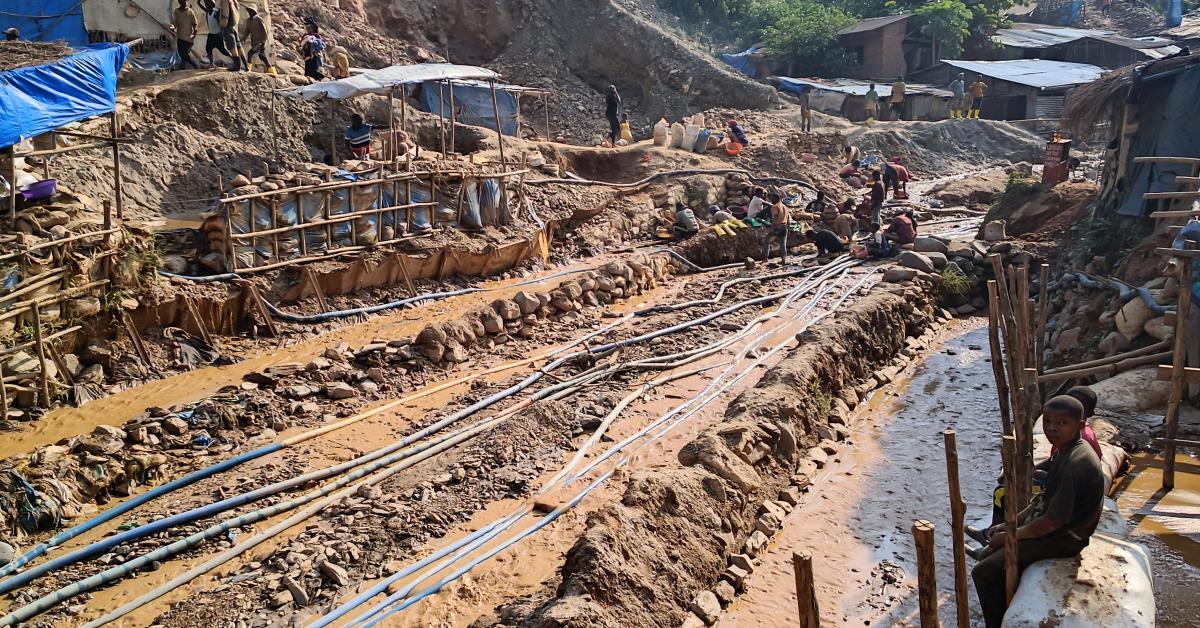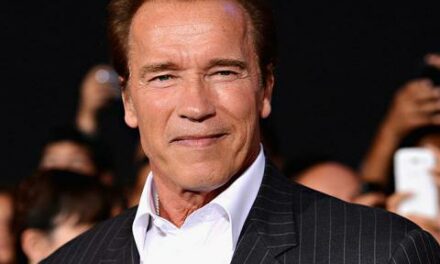We support our Publishers and Content Creators. You can view this story on their website by CLICKING HERE.

A new study is raising concerns about the ethical sourcing of strategic minerals that go into the electric vehicles the Biden-Harris administration is mandating more people drive.
“Recharge for Rights” by Amnesty International assesses automakers’ performance on human rights policies, including forced evictions, health impacts from environmental pollution, child labor and slavery. The report found that, while some automakers did better than others — Tesla and other American automakers scored the highest — none of them met Amnesty International’s standards. “The human rights abuses tied to the extraction of energy transition minerals are alarming and pervasive and the industry’s response is sorely lacking” said Amnesty International’s Secretary General, Agnès Callamard.
The report comes out a month after the U.S. Department of Labor updated its “List of Goods Produced by Child Labor or Forced Labor.” The list includes a range of agriculture and industrial products produced all over the world, including lithium, cobalt, nickel and a host of other minerals.
“This fixation on electric vehicles that the environmentalists have causing them to overlook, or just turn a blind eye I should say, to these types of atrocities — child labor and slave labor,” Tom Pyle, president of the American Energy Alliance, told Just the News.
Proponents of the so-called energy transition have known for some time that the demand for critical minerals was going to be massive in order to reach the goals of net zero by 2050. The amount of minerals needed to make an EV is 10 times greater, according to the International Energy Agency, than that of a comparable gas-powered vehicle.
Standards: Mercedes on top, Nissan, Hyundai and Mitsubishi at bottom
According to the Amnesty International report, Mercedes-Benz rates the highest in terms of demonstrating a commitment to human rights in its materials sourcing, and China-based BYD rates the lowest. Greely Auto, another Chinese company, is also among the automakers with the weakest demonstration. Nissan, Hyundai and Mitsubishi are also in the group that Amnesty International claims have the lowest demonstration of commitments to human rights.
Amnesty International has long been raising concern about Chinese labor practices, including the use of forced labor in internment camps, many of which are populated by minority Muslims. Neither BYD nor Greely Auto responded to requests for comments on the report’s findings, but Nissan, Hyundai and Mitsubishi disputed that they’re failing to demonstrate commitments to human rights.
“Hyundai Motor is committed to a sustainable, ethical supply chain that upholds human rights, environmental protection, and safety. Our supply chain compliance program sets out the highest standards, incorporating Hyundai Motor’s ESG due diligence system and Responsible Raw Materials Procurement Policy. Our Supplier Code of Conduct defines our commitment to sustainable practices and expectations on working conditions to minimize community impact,” Ira Gabriel, senior group manager corporate and marketing public relations for Hyundai said.
Namie Koketsu, spokesperson for the Mitsubishi Motors Corporation, referred Just the News to the company’s Human Rights Policy and said “we commit to conducting business activities that respect the human rights of our stakeholders, and we take the recent concerns seriously. We understand that the evaluation results are based on disclosures as of 2023, but we have initiated numerous efforts since then, including the following key initiatives, to address these issues promptly.”
Koketsu added that the company engages external experts on human rights across their supply chain and works to mitigate those risks. It’s also using AI to analyze potential connections with suppliers related to conflict minerals and other issues.
“We recognize the importance of the risks pointed out [human rights risks in the supply chain of raw materials for EV batteries] and are strengthening our efforts to prevent and address these issues. We will continue to disclose information on our initiatives through sustainability reports and other channels,” Koketsu said.
Nissan would not comment on the Amnesty International report, but referred Just the News to its “Nissan Human Rights Policy Statement,” which outlines the company’s commitment to respecting human rights and complying with all applicable laws and regulations. “Nissan upholds the highest ethical standards as enshrined in our company rules and promotes human rights across our supply chain. These efforts are reported annually in our Sustainability Data Book and Actions for Minerals Sourcing,” the company said.
Political and practical domestic barriers
Several factors play into the sourcing of materials from nations with weaker human rights commitments than those typically seen in the West. China has a stranglehold on many of the minerals and their processing, and that position gives them an advantage in maintaining industry dominance. China can produce minerals at lower cost in part due to lower environmental and threadbare labor standards.
Frank Lasee, former Republican member of the Wisconsin Senate and author of “Climate Energy and Lies,” told Just the News that their dominance is further bolstered by the green agenda, which provides subsidies for products that are made in China or with Chinese supply chains.
“We’re buying 80% of all those things, including electric batteries for EVs, from China. So we’re taking money we don’t have to increase our electric rates, make our electric grids more unreliable, because you can’t run full time electric power on part time wind and solar, and then we’re buying it from the Chinese to help their economy and grow their military. This is really bad for Americans,” Lasee said.
While the U.S. has mineral resources of its own, it’s extremely difficult to develop them. Environmental groups who push for the energy transition also oppose any efforts to develop the minerals needed for that transition.
“The environmentalists would prefer to outsource the mining of the materials and the processing of the materials to China, the Congo, and places where, as long as they can’t see it, they couldn’t care less,” Pyle with the American Energy Alliance said.
“Nobody respects workers more”
Copper is a strategic mineral critical to renewable energy projects. The Resolution Copper Mine in Arizona, for example, would increase U.S. copper production from about 1 million metric tons annually to roughly 1.5 million metric tons annually. That would supply 25% of the current copper demand in the U.S. The mine has been in development for 30 years. The Ambler Access Road would have opened up mining opportunities in Alaska, but the Biden-Harris administration blocked the development of the road in July.
Pyle said if environmentalists “really cared about the environment, they would be encouraging production of all sources of all forms of energy here in the United States. Because nobody does it cleaner, nobody does it better, and nobody respects workers more than the U.S. The fact that they turn a blind eye to these atrocities, particularly child labor, shows you that this is really nothing more than a political agenda.”

 Conservative
Conservative  Search
Search Trending
Trending Current News
Current News 




